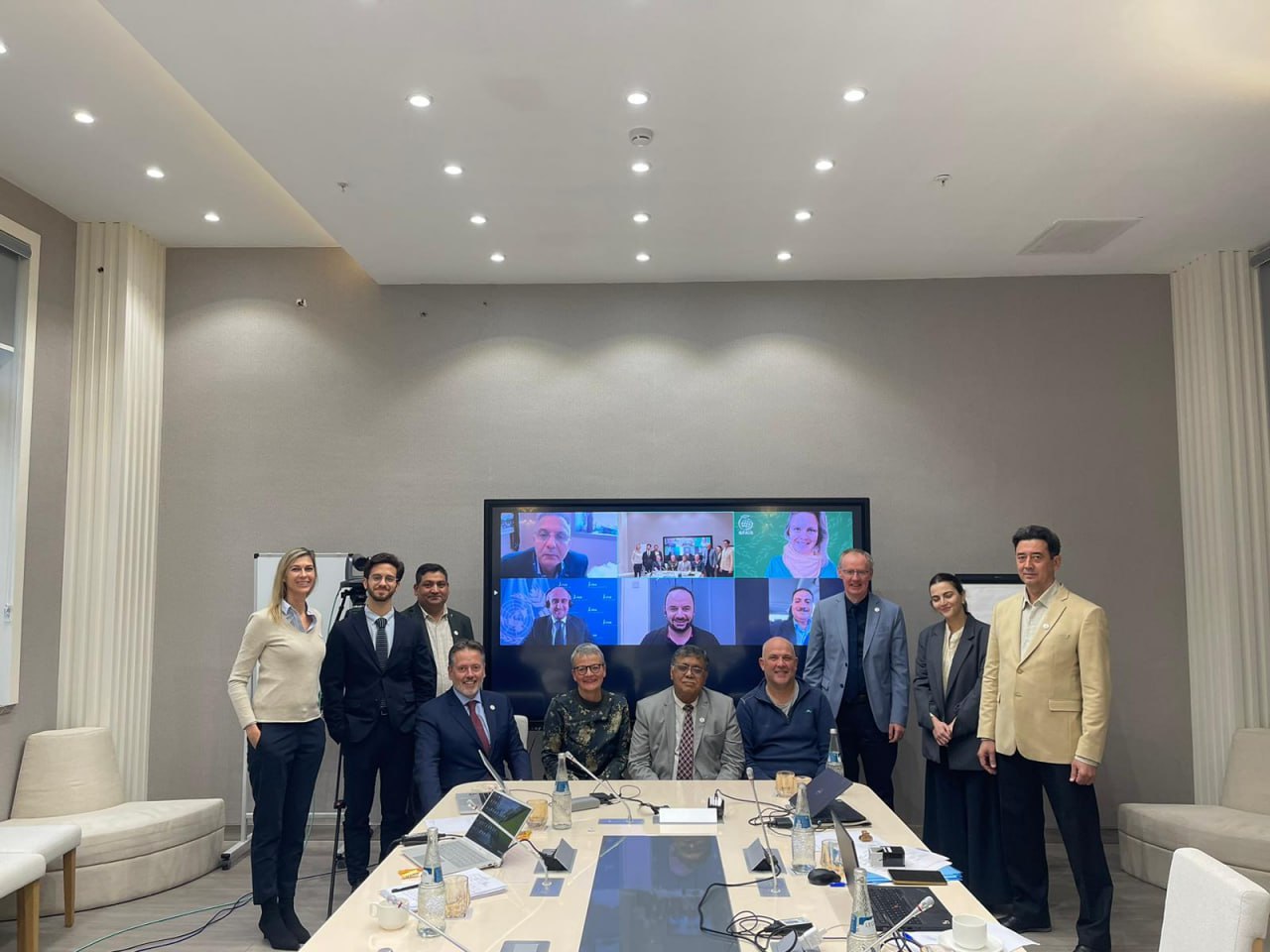
Partnerships
Samarkand, Uzbekistan—A major milestone in international agricultural cooperation was reached as the Global Forum for Agricultural Research and Innovation (GFAiR) signed a series of Memoranda of Understanding (MoUs) with key Regional Platforms and institutions. The MoUs were signed during the Global NARS Consortium (GNC) workshop, held on 22 October 2024, in Samarkand, Uzbekistan, marking a pivotal moment in GFAiR’s commitment to advancing agricultural innovation and regional collaboration on a global scale.
The MoUs were signed with EMBRAPA, AARINENA, APAARI, CACAARI, EFARD, FORAGRO and FARA, establishing a framework for enhanced cooperation. These agreements aim to strengthen the global voice, increase influence, and improve the resource base and capacities of National Agricultural Research Systems (NARS), while reinforcing the collaboration among global and regional partners.
Preparations for 2025: A Roadmap for Enhanced Collaboration
As GFAiR prepares to mark its 30th anniversary, the Regional Platforms will be instrumental in implementing a strategic roadmap, developed in consultation with national, regional, and global institutions, networks, and organizations. This roadmap will be unveiled during the CGIAR Science Week, set for April 7-12, 2025, at the UN Campus in Nairobi, Kenya, as part of the pre-launch of new GFAiR initiatives.
Engaging the Private Sector and Expanding Partnerships
In recognition of the crucial role played by the private sector in agricultural innovation, the agreements include a commitment to welcome private sector participation alongside government agencies. This will encompass extension services, social enterprises, and other private stakeholders, reinforcing the importance of diverse partnerships in advancing sustainable agricultural development.
Strong Regional Support from Central Asia
The workshop highlighted the strong support for GFAiR’s mission from the Central Asia region, with endorsements from governments, research bodies, and farmers' organizations in Uzbekistan, Azerbaijan, Kazakhstan, Georgia, and other nations. This regional backing underscores the shared vision of fostering agricultural resilience and innovation across Central Asia.
New Leadership and Steering Committee for GFAiR
GFAiR’s newly formed Steering Committee was also officially introduced at the workshop. Dr. Ravi Khetarpal, who continues to lead as Chair, was joined by the newly appointed Vice Chair, Dr. Romano de Vivo, who took over from Dr. Ross McLeod. Dr. McLeod was acknowledged for his invaluable contributions and steadfast support to GFAiR over the years.
In addition, the Steering Committee welcomed three new members: Daniel El Chami from TIMAC AGRO International, Katja Vuori from AgriCord, and three representatives from UNWOMEN, signaling a strengthened commitment to gender equity and inclusive agricultural development.
Paving the Way for Global Agricultural Progress
The signing of these MoUs marks a significant step toward a more cohesive and impactful global agricultural research community. GFAiR, through the GNC, is committed to driving agricultural innovation and collaboration that meets the challenges of the 21st century. The 2025 roadmap will serve as a cornerstone for aligning regional strengths with global priorities, ensuring that the next decade of agricultural research is marked by sustainable growth, collaboration, and shared success.
About GFAiR
The Global Forum for Agricultural Research and Innovation (GFAiR) is dedicated to advancing agricultural research, innovation, and collaboration across the globe. By harnessing the expertise of regional platforms and partnering with a diverse range of stakeholders, GFAiR aims to build a sustainable, food-secure future for all.
Key Regional Fora
Association of Agricultural Research Institutions in the Near East and North Africa (AARINENA)
AARINENA addresses the unique agricultural challenges of the Near East and North Africa, with a focus on optimizing resources in arid and semi-arid regions. The MoU establishes a solid framework for cross-border collaboration, encouraging sustainable agricultural practices tailored to the region's specific needs.
Asia-Pacific Association of Agricultural Research Institutions (APAARI)
APAARI supports the diverse Asia-Pacific region by promoting research and innovation to improve agricultural practices, food systems, and livelihoods. The MoU aims to deepen regional partnerships, ensuring the transfer of knowledge and technologies to benefit communities across Asia-Pacific.
Central Asia and the Caucasus Association of Agricultural Research Institutions (CACAARI)
CACAARI is dedicated to the development of sustainable agricultural systems in Central Asia and the Caucasus, regions that are increasingly impacted by climate change. The new MoU will enhance cooperation, focusing on climate resilience and locally adapted agricultural solutions.
Brazilian Agricultural Research Corporation (EMBRAPA)
EMBRAPA is a leading agricultural research institution in Brazil, known for its cutting-edge research and technology in tropical agriculture. The MoU with EMBRAPA will strengthen ties between Brazil and international agricultural research communities, facilitating the exchange of innovative solutions for sustainable agriculture.
European Forum for Agricultural Research (EFARD)
EFARD aims to strengthen the contribution of European Agricultural Research for Development (ARD) to poverty alleviation, food security, nutrition and sustainable development in developing countries by providing a platform for strategic dialogue among European stakeholder groups and building research and innovation partnerships between European and Southern ARD communities.
Forum for Agricultural Research in Africa (FARA)
FARA, the umbrella organization for agricultural research in Africa, is dedicated to advancing food security, sustainability, and resilience throughout the continent. The newly signed MoU will facilitate stronger partnerships, enabling FARA to drive impactful research projects that extend beyond Africa.
Forum of the Americas for Agricultural Research and Technology Development (FORAGRO)
FORAGRO represents agricultural research institutions in Latin America and the Caribbean, contributing to food security, biodiversity conservation, and sustainable agricultural development. The MoU aims to strengthen research networks, fostering innovations that support the region’s unique agricultural landscape.
For more information, please contact:
